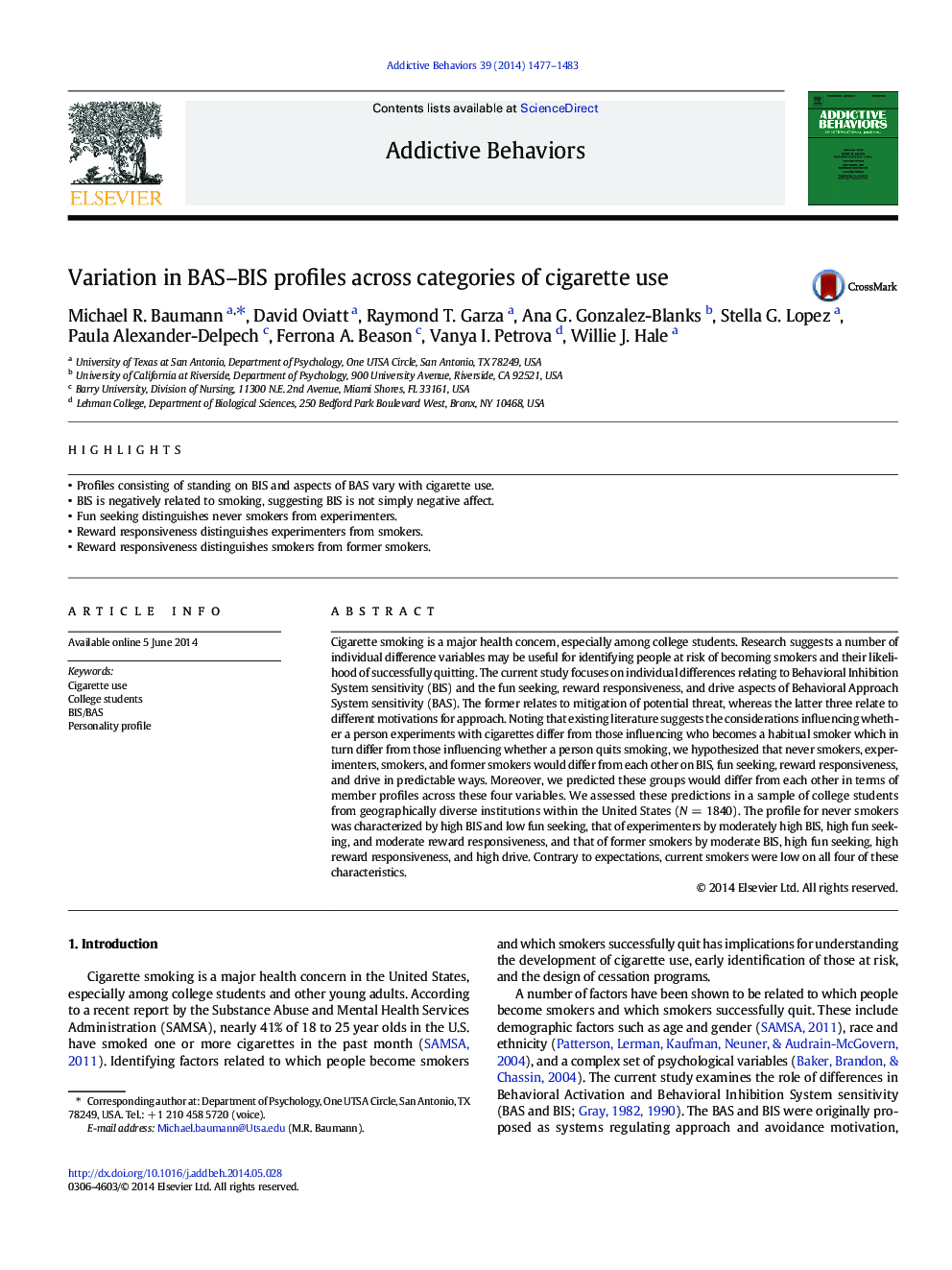| Article ID | Journal | Published Year | Pages | File Type |
|---|---|---|---|---|
| 898925 | Addictive Behaviors | 2014 | 7 Pages |
•Profiles consisting of standing on BIS and aspects of BAS vary with cigarette use.•BIS is negatively related to smoking, suggesting BIS is not simply negative affect.•Fun seeking distinguishes never smokers from experimenters.•Reward responsiveness distinguishes experimenters from smokers.•Reward responsiveness distinguishes smokers from former smokers.
Cigarette smoking is a major health concern, especially among college students. Research suggests a number of individual difference variables may be useful for identifying people at risk of becoming smokers and their likelihood of successfully quitting. The current study focuses on individual differences relating to Behavioral Inhibition System sensitivity (BIS) and the fun seeking, reward responsiveness, and drive aspects of Behavioral Approach System sensitivity (BAS). The former relates to mitigation of potential threat, whereas the latter three relate to different motivations for approach. Noting that existing literature suggests the considerations influencing whether a person experiments with cigarettes differ from those influencing who becomes a habitual smoker which in turn differ from those influencing whether a person quits smoking, we hypothesized that never smokers, experimenters, smokers, and former smokers would differ from each other on BIS, fun seeking, reward responsiveness, and drive in predictable ways. Moreover, we predicted these groups would differ from each other in terms of member profiles across these four variables. We assessed these predictions in a sample of college students from geographically diverse institutions within the United States (N = 1840). The profile for never smokers was characterized by high BIS and low fun seeking, that of experimenters by moderately high BIS, high fun seeking, and moderate reward responsiveness, and that of former smokers by moderate BIS, high fun seeking, high reward responsiveness, and high drive. Contrary to expectations, current smokers were low on all four of these characteristics.
